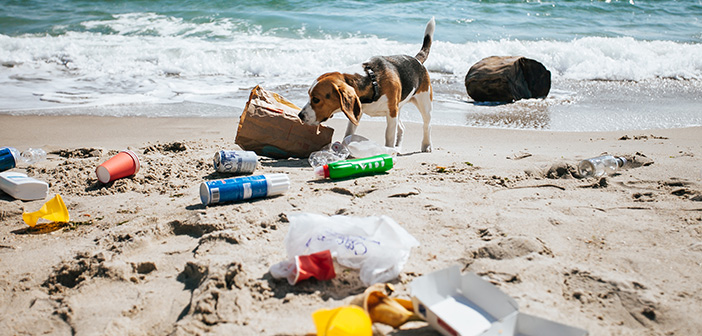As lockdown restrictions on socialising outdoors are relaxed, vets are reminding the public to dispose of litter and barbecue waste responsibly to protect pets, farm animals and wildlife.
The recent relaxing of restrictions on socialising outdoors is predicted to cause a surge in picnics and barbecues over the coming weeks. The British Veterinary Association (BVA) is asking the public to remain mindful of the dangers litter such as broken glass, barbecue skewers and food packaging can pose to animals.
Figures from the BVA’s Voice of the Veterinary Profession survey revealed that in 2018, 44% of vets treated animals suffering injuries or harm from litter. Vets are hoping that the public will take steps to dispose of their litter responsibly after hearing of the terrible impact on animals.
The cases ranged from external injuries, such as cuts and damaged limbs, to obstruction or internal injury and poisoning due to the ingestion of litter. They were most commonly seen in pets but there were also reports of cases in wildlife and farm animals. In a number of cases the animals died despite receiving veterinary care.
Daniella Dos Santos, the BVA’s senior vice president, said: “We are all looking forward to reuniting with loved ones in accordance with government guidance over the next month and for many of us this will mean socialising outside in parks, gardens and other outdoor spaces. We are hoping that this reminder of the harmful impact litter can have on animals prompts everyone to ensure they dispose of any waste responsibly.
“These figures show that even before the current restrictions many animals were arriving in practices across the country every week requiring treatment for terrible, and sometimes fatal, injuries and poisoning caused by discarded rubbish. This isn’t just about obvious hazards like broken glass; any unsecured rubbish in public spaces, or even outside your home, can attract animals and lead to injuries.”


